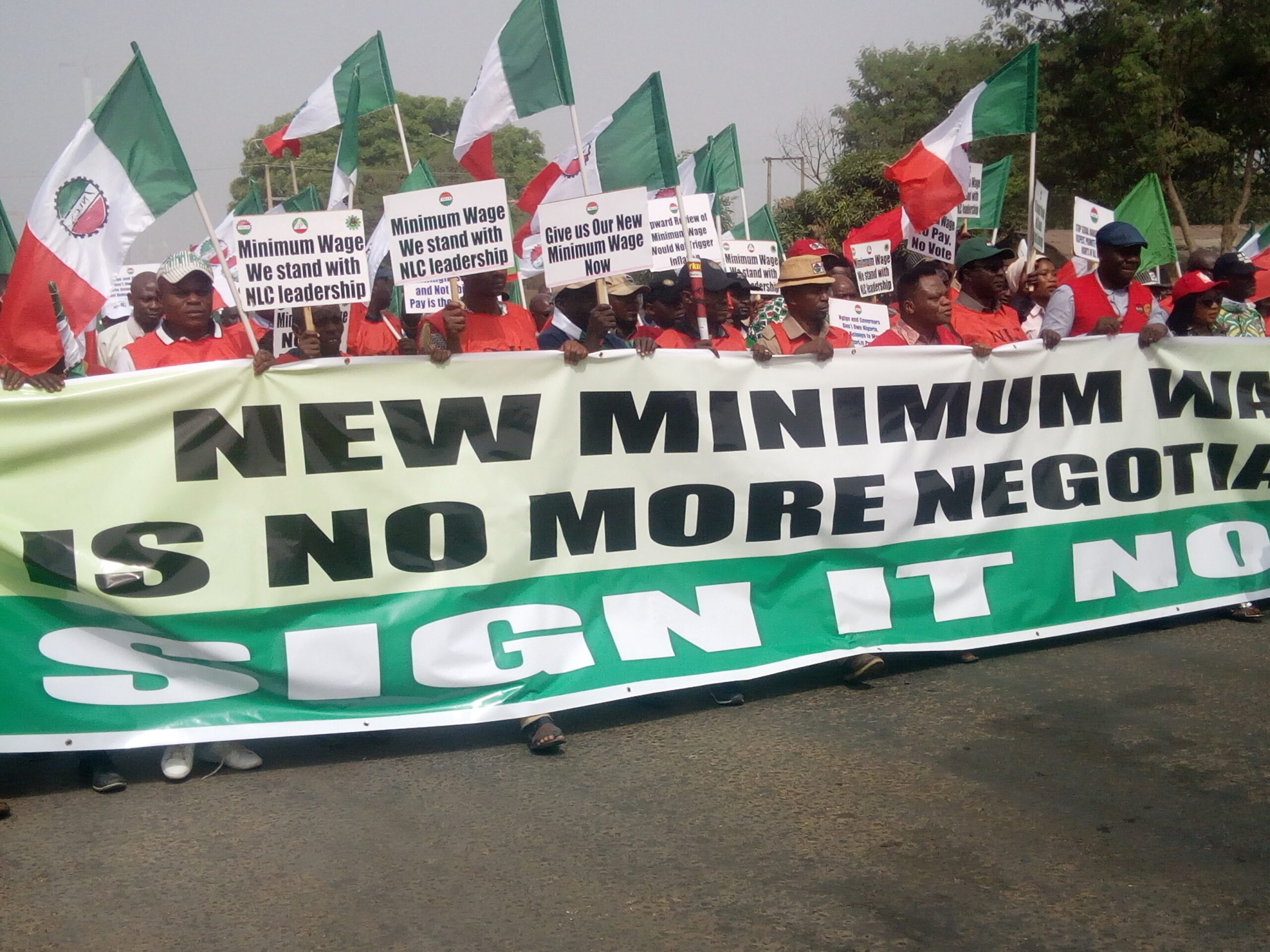President Bola Tinubu’s formation of a committee to determine a fresh minimum wage for Nigerian civil servants comes at a precarious time, with the nation grappling with a staggering 28.92% inflation rate.
Economists express apprehension that implementing a substantial wage increase might exacerbate the economic situation, potentially pushing inflation beyond 50%. The daily widening of the naira exchange rate to international currencies adds a layer of concern.
Tinubu’s assurance of a minimum wage satisfying all raises questions about the actual figure. The World Bank’s perspective on poverty lines reveals that a N30,000 monthly wage, at the current exchange rate of N1,520/$, equates to a mere 66 cents per day—well below the international extreme poverty line of $1.90.
If the committee follows the World Bank’s standard, the new minimum wage must be at least N84,474, considering the current exchange rate to the dollar.
However, injecting an additional N50,000 per civil servant (approx. 1.7 million) could infuse N85 billion into the economy monthly, totalling N1.02 trillion annually. Without productivity enhancements, the government might resort to endless printing or borrowing, causing demand-pull inflation.
President Tinubu aims to surpass the basic Social Protection Floor for Nigerian workers, aligning with each tier of government’s sustainable payment capacity.
Experts weigh in on the potential impact of wage increases. Professor Tayo Bello suggests that while it may improve workers’ purchasing power initially, it could contribute to inflationary pressures, creating a feedback loop of rising wages fueling further inflation.
Dr. Tosin Olaleye adds that SMEs, constituting over 96% of businesses in Nigeria, may face vulnerability due to increased wage costs, potentially leading to layoffs or business closures.
Special Advisor Dr. Jumoke Oduwole emphasizes that 39.7 million MSMEs account for 96% of businesses and 88% of jobs, underscoring the need for careful consideration and complementary policies.
Financial economist Dr. Nelson Nkwo stresses the importance of balancing higher wages with inflation control, recommending comprehensive measures for economic stability.
Drawing parallels with the 1972 Udoji Commission outcome, Nkwo expresses concerns about potential uncontrollable inflation if wage increases are not managed properly.
Dr. Emeka Okengwu advocates for a focus on a living wage, considering energy costs, education, and healthcare. He cautions that productivity is key, especially as a small percentage of Nigerians are employed.
The Living Income for 2023, estimated at NGN 232,948 (USD 383), considers inflation since mid-2020. However, stakeholders like Moses Igbrude and Professor Tayo Bello emphasize that addressing the underlying productivity issues in sectors like agriculture and manufacturing is crucial, highlighting that increasing the minimum wage alone may not be a panacea.











